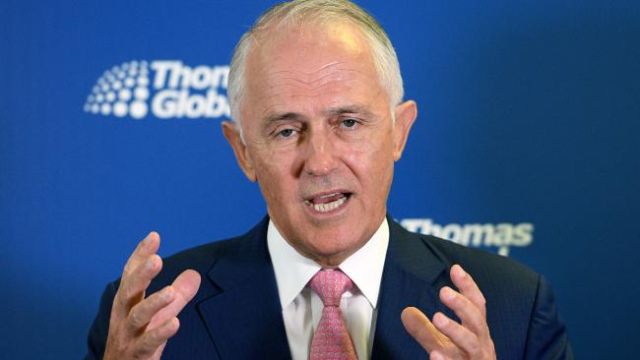
The journalists’ union and legal organisations have warned that the federal Coalition government’s latest amendments to the Criminal Code Act 1995 would make it difficult, if not impossible, to report on what the government does behind closed doors.
The Media Entertainment and Arts Alliance (MEAA), Australian Lawyers for Human Rights, Human Rights Watch, Human Rights Law Centre, Human Rights Commission and 13 major media companies, including the ABC say the National Security Legislation Amendment (Espionage and Foreign Interference) Bill 2017, will undermine the media’s ability to report on matters in the public interest.
While the Coalition is spruiking its “crackdown on foreign interference” in politics and “national security”, the reality is very different.
The bill, which was introduced on the last sitting day of parliament in 2017, is the 67th piece of “national security” legislation introduced since September 11, 2001 and the launch of the “war on terror”.
Submissions on the bill say it poses a grave threat to press freedom and journalists could be jailed for up to 20 years just for doing their jobs. The lawyers’ groups say the bill is so far-reaching, journalists could be prosecuted for simply receiving certain government documents.
The media groups also complained about the scope of the bill, which is incredibly broad: “The bill applies to ‘information of any kind, whether true or false and whether in a material form or not, and includes (a) an opinion; and (b) a report of a conversation’.”
Even the submission from the Inspector-General of Intelligence and Security — the government’s intelligence watchdog — argued the bill went too far. It argued that the way the bill was currently worded, even its own staff could be at risk of breaking the law by handling documents they need to access for their job.
The Law Council of Australia said that many of the offence provisions were so broadly worded they could capture a range of benign conduct that did not impact on national security.
If the bill had become law last year, the ABC’s recent publication of some of the confidential cabinet documents found in two second-hand filing cabinets offered for sale in a Canberra auction would have broken the law.
But, while the documents proved embarrassing to current and former governments, they did not harm Australia’s national security.
As 60 Minutes reporter Ross Coulthart told The Australian: “We are at a state in journalism where the government is using the cloak of national security to attempt to hide their failings, and we are allowing it at our peril.”
As the bill currently stands it would be a criminal offence for anyone to “receive” and “handle” certain information. Just by receiving the filing cabinets and reading what was inside would have put the ABC staff in breach of the provisions of the bill, suggesting that “national security” now includes protecting governments from scrutiny.
The MEAA pointed out that a journalist found in possession of a document classified “top secret” could face 20 years’ in jail under the proposed legislation — even if they never broadcast or publish a story.
“This applies not only to journalists but to other editorial and support staff who know of the information, from sub-editors and designers to even the receptionist who is handed a classified document.”
The bill also undermines the ability of journalists to protect their sources, including whistle blowers, on important news stories. And even if there is a guarantee that journalists would not be jailed, public interest reporting would become more difficult if the government is threatening to jail public servants and whistle blowers for trying to tell the public about politicians’ lies, concealments and mistakes.
Federal MP and former intelligence officer Andrew Wilkie told the ABC he did not support the bill because national security cannot be an excuse for curtailing press freedom. “It should not be at the expense of whistle blowers and the media because at the end of the day we need whistle blowers in the media to uncover wrongdoing.”
On February 6, Opposition Leader Bill Shorten said Labor would not support the bill unless secrecy provisions targeting journalists were removed. This marks a departure from Labor’s usual cooperation with the government on national security.
Given that the Nick Xenophon Team and the Greens have already signalled their opposition to the bill, Labor’s position means the government may not have the numbers for the bill to pass the Senate in its current form.
However, that could change depending on when the four vacancies currently in the Senate are filled.
The MEAA says the bill should not proceed unless there is a robust general public interest defence for both the secrecy and espionage elements. Sign its petition asking the Prime Minister Malcolm Turnbull and Attorney-General Christian Porter for the bill to be rewritten to protect journalists from criminal prosecution.
Like the article? Subscribe to Green Left now! You can also like us on Facebook and follow us on Twitter.